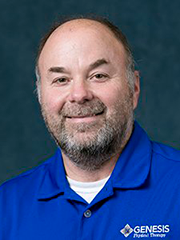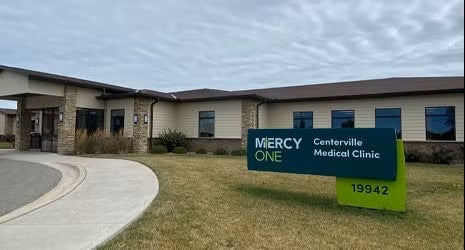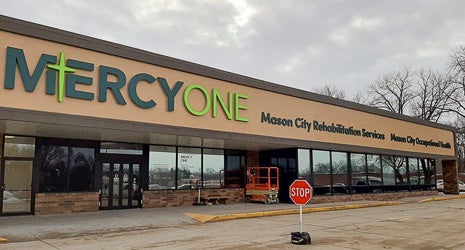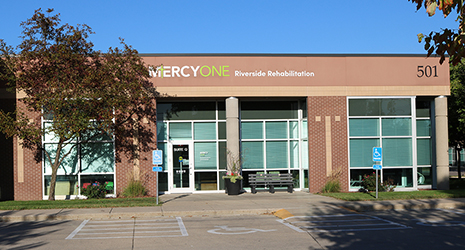What is speech therapy?
Speech therapy is used to address speech sounds, language, literacy, social communication, voice, fluency, cognitive issues such as memory, attention and thinking skills. It can also address issues related to eating and swallowing. MercyOne uses evidence-based practices to treat patients of all ages.
If you have a child with a developmental delay or disability, MercyOne has pediatric-trained professionals dedicated to help your child communicate, play, learn and live life to the fullest. Our professionals welcome family members to join the treatment sessions so they are equipped to work with their child at home.
MercyOne speech therapists work with you to develop an individualized plan to meet your goals so you may continue to live your best life.
Who can benefit from speech therapy?
Speech therapy as an adult may be beneficial if you have/had:
- Head and neck cancer
- Mental retardation
- Neurological diseases (cerebral palsy, multiple sclerosis, Parkinson’s disease, etc.)
- Swallowing disorder
- Stroke
- Traumatic brain injury
- Weakness or infection
Speech therapy can be beneficial to your child if diagnosed with:
- Apraxia
- Autism spectrum disorder
- Cerebral palsy
- Cleft palate
- Developmental delays or disability
- Down Syndrome
- Hearing loss
- Speech delay
What does speech therapy help with?
MercyOne’s speech therapists take time to understand your challenges and focus on creating a personalized plan for you. Speech therapy services include the treatment of:
- Aphasia - Difficulty understanding language or expressing oneself, including decreased reading and writing skills (usually caused by trauma to the brain).
- Apraxia - Difficulty coordinating the movements necessary for speech production.
- Articulation and phonological disorders - Difficulty making speech sounds, language and literacy troubles.
- Cognitive impairments - Difficulty with sequencing, problem-solving, insight, reasoning and memory.
- Dysarthria - Slurred or tight-sounding speech.
- Dysphagia - Difficulty chewing or swallowing food and/or liquids.
- Fluency disorders - Difficulty expressing oneself easily and accurately.
- Voice disorders - Difficulty with pitch, volume, tone and other voice qualities.
How to get started with speech therapy
The first step in speech therapy is an initial evaluation. A MercyOne speech therapist will visit with you to:
- understand your concerns.
- obtain background information and medical history.
- Formalized testing may be completed.
- provide ideas/suggestions regarding speech therapy activities to do at home.
- Answer any questions you may have.
- schedule speech therapy and discuss goals if they are deemed appropriate for you.
If swallowing is a concern, a video swallow study may be recommended.







